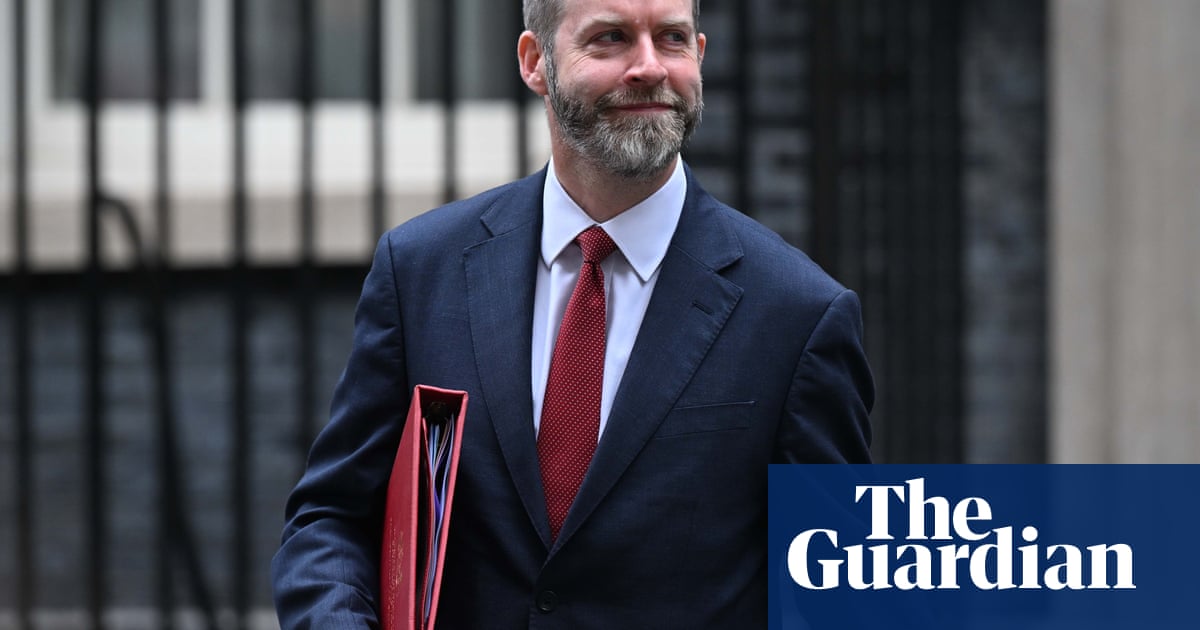The United States is poised to start lowering itstariffs on some British productswithin days, the UK trade secretary has indicated.
Jonathan Reynoldstold reporters the US was expected to slash its tariffs on British cars “very soon” after “a very significant week” of talks.
Reynolds and Keir Starmer metHoward Lutnick, the US commerce secretary, for talks on Tuesday evening where they raised the implementation of the US-UK trade deal.
Reynolds said: “Secretary Lutnick and I, and the prime minister, talked specifically about the execution of the automotive tariff reduction … which is part of our deal. I’m hoping to be able to update you all on that very soon.”
Asked whether he expected thetariff reductions to begin this week, he said: “I’m very hopeful. It was a specific area of conversation on Tuesday in that bilateral meeting. We are ready to go on our side … as soon as the president and White House are able to on their side.”
After the meeting Lutnickposted on Xthat trade quotas on British cars and American beef and ethanol would be implemented “within days”.
Peter Mandelson, the UK ambassador to Washington, raised the implementation of the deal again at a meeting with Donald Trump on Wednesday. “I assured the president that our markets were ready to receive new quotas of US goods and that the UK looked forward to the deal’s swift implementation,” Mandelson said in a statement after the meeting.
Having negotiated trade agreements with the US, the EU and India, ministers are focused on finalising a £1.6bn deal with the Gulf Cooperation Council (GCC).The Guardian reported last monththat the deal, which will boost trade with countries including Saudi Arabia and the United Arab Emirates, was nearing completion and was likely to draw backlash over human rights and modern slavery concerns.
Reynolds confirmed that the deal with the GCC would not contain legally binding commitments on labour or environmental standards but said the UK needed to strike agreements with countries “different to ourselves”.
“There will be chapters in that agreement, they’ve already been negotiated on environmental standards, on labour standards. They’re not legally binding, you don’t have that in trade deals, but it’s important you have that ethos and that approach reflected,” he said.
“What this country needs to be is the best connector market in the world and that will require, after leaving theEuropean Union, trade agreements with some places that are not western democracies.
“We’ve got to recognise that not only is there a commercial interest in us being involved in those places, British engagement is positive. There are countries in the Gulf who are different to ourselves, but have been the areas where there’s been some more significant change in the last decade.”
Reynolds also shared an anecdote about his first WhatsApp message to Lutnick, which was sent shortly after he wasconfirmed as US commerce secretary in February.
“Then begins what I can only describe as a cross-Whitehall process to write, collectively with collective agreement, a WhatsApp message to the United States. Now that was as bad as it sounds – literally something no human being would send or be able to understand,” he said.
“The whole of the British state at its finest and most efficient way, gets together, starts agreeing on every sentence, every word, and it comes through to me. By this time, it’s about 10 o’clock at night, and Claire [Reynolds] and I are driving back to Stalybridge together. I get the message, and I think it needs a little bit of work … but I go, the whole of the government’s been engaged in this so fair enough, we send it off.”
“Howard just rings me straight back … and he says, ‘Johnny, I got your message. I don’t know what it means.”
